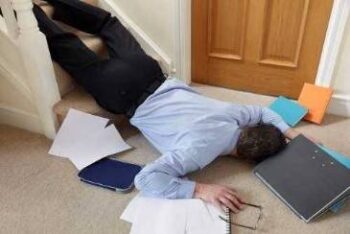Slip and fall accidents can happen unexpectedly, causing injuries that range from minor bruises to severe fractures. In Huntington Beach, California, these incidents are not uncommon, and when they occur, individuals and property owners alike need to be aware of the common defense strategies employed in slip and fall lawsuits. Understanding these strategies is crucial for both parties involved, as it can significantly impact the outcome of legal proceedings.
Understanding Slip and Fall Lawsuits in Huntington Beach, CA
In Huntington Beach, slip and fall lawsuits fall under premises liability, which holds property owners responsible for injuries that occur on their premises due to negligence. To successfully pursue a slip and fall claim, the injured party, or plaintiff, must prove that the property owner was aware of a hazardous condition and failed to address it adequately. On the flip side, property owners often rely on various defense strategies to protect their interests in such lawsuits.
Lack of Knowledge or Notice
One common defense strategy employed by property owners is to claim a lack of knowledge or notice regarding the hazardous condition that led to the slip and fall incident. To establish this defense, the property owner must demonstrate that they were unaware of the dangerous situation or that they had taken reasonable steps to address it promptly. This strategy aims to shift the burden of proof onto the plaintiff by asserting that the property owner could not have reasonably known about the hazard.
Comparative Negligence
In slip and fall cases, property owners may argue that the injured party, the plaintiff, was partially or fully responsible for the accident. This is known as comparative negligence. California follows a pure comparative negligence system, meaning that even if the plaintiff is found to be partially at fault, they can still recover damages, but the amount will be reduced in proportion to their level of responsibility. Property owners may use this strategy to minimize the compensation they may be required to pay.
Open and Obvious Doctrine
The open and obvious doctrine is another defense strategy frequently utilized in slip and fall cases. It posits that if the hazardous condition was open and obvious, a reasonable person should have noticed and avoided it. Property owners argue that the plaintiff’s failure to exercise caution in the face of an obvious danger absolves them of liability. However, this defense can be challenged if the plaintiff can demonstrate that the danger was not, in fact, open and obvious.
Proximate Cause Defense
Property owners may also invoke the proximate cause defense, asserting that the hazardous condition was not the direct cause of the plaintiff’s injuries. To successfully use this defense, property owners must demonstrate that the plaintiff’s actions or intervening factors unrelated to the property owner’s negligence were the primary cause of the slip and fall incident.
Lack of Causation
A defense often intertwined with the proximate cause argument is the lack of causation. Property owners may contend that the hazardous condition did not directly cause the injuries sustained by the plaintiff. This strategy involves scrutinizing the connection between the property owner’s negligence and the resulting harm to cast doubt on the causation aspect of the slip and fall claim.
Navigating Slip and Fall Lawsuits in Huntington Beach, CA
Slip and fall lawsuits can be complex, requiring a nuanced understanding of both plaintiff and defense perspectives. In Huntington Beach, CA, where such cases are not uncommon, legal representation is crucial for both parties involved. Plaintiffs need to ensure that they gather sufficient evidence to establish the property owner’s negligence, while property owners must be prepared to employ effective defense strategies to protect their interests.
The Importance of Legal Guidance in Slip and Fall Cases
In the intricate legal landscape of slip and fall cases in Huntington Beach, the importance of legal guidance cannot be overstated. Whether you are the plaintiff seeking compensation for injuries or a property owner defending against a claim, having an experienced attorney by your side can make a significant difference in the outcome of your case.
Gathering Evidence and Establishing Negligence
For plaintiffs, the key to a successful slip and fall claim lies in gathering compelling evidence that establishes the property owner’s negligence. This may include photographs of the hazardous condition, eyewitness testimonies, surveillance footage, and maintenance records. An experienced attorney can guide plaintiffs in collecting and presenting this evidence effectively, building a robust case to demonstrate the property owner’s liability.
Countering Defense Strategies
On the other hand, property owners need skilled legal representation to counter the common defense strategies discussed earlier. A knowledgeable attorney can develop a strategic defense, challenging assertions of lack of knowledge, comparative negligence, the open and obvious doctrine, proximate cause, or lack of causation. By dismantling these defenses, property owners can protect their interests and minimize potential liabilities.
Navigating slip and fall lawsuits in Huntington Beach, CA demands a comprehensive understanding of the common defense strategies employed by property owners. From arguing lack of knowledge to invoking comparative negligence, property owners strive to shield themselves from liability. On the flip side, plaintiffs must be diligent in building a strong case, demonstrating the property owner’s negligence and countering these defense strategies.
If you find yourself involved in a slip and fall lawsuit in Huntington Beach, it is crucial to seek legal guidance to ensure your rights are protected. At Timothy J. Ryan & Associates, we focus on navigating premises liability cases, providing the experience needed to pursue or defend against slip and fall claims. Contact us today to schedule a consultation and safeguard your interests in the complex legal landscape of slip and fall lawsuits.
